Insight Blog
Agility’s perspectives on transforming the employee's experience throughout remote transformation using connected enterprise tools.
10 minutes reading time
(1902 words)
The possible issues with employee engagement and how to solve them
So, how can a company engage employees to the point where they aren't hoping for more off days?
It is hard to keep your staff motivated and engaged. Most of the employees would prefer to be under the sun when the weather is hot and sunny. Employees prefer to stay at home, cuddled up with good hot cocoa when the weather is chilly, damp, and windy. It's impossible to win.
So, how can a company engage employees to the point where they aren't hoping for more off days?
It is not possible for the business to be engaging, but HR can make the work engaging. The HR professionals are responsible for ensuring that employees are satisfied and engaged. They always try to take down any obstacles and look for ways to boost engagement and satisfaction for their hardworking employees.
However, in order to assist employees, the experts in HR must first comprehend the possible issues with employee engagement. It is important to remember that the employees that are not engaged have the potential to generate greater problems for the company than simply being dissatisfied.
Basics of employee engagement
Employee engagement is an important factor in your organization's success and it is a basic term that aids in the understanding and describing quantitative and qualitative characteristics of an organization's interaction with all of the employees. You can also call it a relationship between the organization and its employees. More importantly, you need to focus on the "engaged employee" as it is a factor that leads to the right mindset for all of the employees where they are ready to give their best on their job.
True commitment and contribution to the organization's goals and ideals. According to reports, about 90% of experts consider that an engaged employee can perform better in comparison to an unengaged employee. Likewise, the engaged employees are expected to contribute to their team's success and help the company reach new heights. In addition, he also has a good attitude toward the organization and contributes to its overall worth.
It is a simple concept and at its core, an engaged employee has a mutually beneficial relationship with his or her employer. You can formulate an engagement plan and gauge an employee's behavior towards your engagement efforts. There are certain factors that influence this relationship including:
- Employee's dedication
- Communication between employee and employer
- Honesty, and
- Employee's trust in the organization and its policies
Employees that are properly engaged feel more connected to the organization.
So, an employee who feels connected to his or her workplace performs better in comparison to an unengaged employee. It is also important to note that an engaged employee is more likely to stay longer with the organization and inspire his colleagues to do the same. Similarly, an organization's productivity is dependent on employee engagement, so it also influences revenue and profitability.
What are the difference between employee engagement and employee experience
When it comes to online employee experience, there are two key concepts that are often confused: employee engagement and employee experience. Both are important, but they refer to different things.
Employee engagement is all about how motivated and invested employees are in their work. It's about creating a work environment that encourages people to do their best and feel proud of their contributions.
Employee experience, on the other hand, refers to the overall online experience that employees have with the company, from the onboarding process to ongoing training and development.
A good online employee experience makes it easy for employees to do their jobs well and feel supported in their career growth.
Both employee engagement and online employee experience are important factors in creating a successful online business.
How employee engagement is measured?
Every organization is trying to boost employee engagement, but they must first understand what their organization does effectively and where it might improve. Thus, it is crucial to know about the methods by which you can quantify employee engagement. It is a good place to start when it comes to developing an engagement plan.
There are few things that you can quantify simply because they are concrete. For example, the time you spend commuting to work or the number of red lights you can pass without being late. Measuring employee involvement, on the other hand, is more challenging. It isn't set in stone and is affected by a variety of circumstances.
Use of pulse surveys
You can conduct some short and frequent surveys to measure employee engagement as it is an excellent method to keep tabs on the mood of your employees working in their offices. You do not need to make this a difficult process. You can simply find a general way to ask some questions (5 to 10). However, the questions must be about how the employees feel about working in your organization and what changes do they want in the organization.
Stay interviews
These are 1-on-1 conversations with your organization's old employees where you can ask explicit questions about what keeps them in your company. These are significantly less common but far more beneficial than exit interviews. You can use this time as an opportunity to determine what your employees enjoy and what aspects of your employee engagement plan are effective.
Don't jump to conclusions based on a lack of evidence. For example, if no one likes your policy about vacations doesn't imply it's not vital to your team. Always set aside some time to talk about the topics for improvement so that you can understand what your employee's top priority is.
Exit interviews
You can also conduct exit interviews to have an idea about what you can improve in your employee engagement plan. It is one of the finest ways to figure out how to boost employee engagement. You should consider this as a highly reactive strategy and take precautions in using it as the focus of your efforts. You can't rely on the opinions of people you've lost if you want to better engage your present staff.
Activities for employee engagement
Here are some employee engagement activities that you can include in your strategy:
Knowledge sharing
You do not want to lose the important information as it is one of the most significant costs of a high employee turnover rate. You should aim to develop a knowledge-sharing culture that can help you avoid that cost, and it's also a terrific way to engage new hires.
You can set up a mentorship program in which experienced staff is paired with freshly hired personnel, or you can use communication tools. It is also possible to create a learning program template for them to follow. You should also allow enough room for them to experiment with their own learning methods. Always give them a deadline and a set of goals, then step back and allow the connection to develop naturally.
Gamification
Employees enjoy participating in games and the games don't have to be expensive. You can use intranet Gamification to your advantage as it brings characteristics of gaming into the workplace to instill a little friendly rivalry.
Intranet Games are used by companies across industries to encourage adoption by making technology more appealing and engaging. These kinds of innovative solutions were nonexistent in the past. You can use various incentives, leader boards, and rewards in order to encourage users to use them.
One-on-one meetings
A 1:1 meeting (pronounced one-on-one or one-to-one meeting) is a regular check-in between two people in an organization – typically a manager and an employee. It's used to give feedback, keep each other in the loop, resolve issues, and help the participants grow in their roles.
Occasional parties
You can commemorate the continuous operation of your organization as most corporations hold yearly summer and winter parties. It is also possible to add additional events, such as Halloween parties, Thanksgiving feasts, and other celebrations. All of these events provide an opportunity to give employees the impression that they are a company's top priority. However, you do not need to overdo it as two annual gatherings are sufficient. Regardless, you need to make them memorable. You can make these engagement parties more interesting by inviting employees' family members.
Ideas for employee engagement
You need to take action at the local level to have a long-lasting impact on employee engagement. There is no such thing as one perfect solution.
The managers are responsible for employee engagement and they are the first ones who should understand and promote employee engagement. It is because they are actively engaged with the employee on day to day basis.
Employee empowerment
Trust is the foundation of any relationship. To be enthusiastic and excited about working for your organization, an employee must first be trusted by you. This trust will enable them to make decisions on behalf of the company that will help it grow. This trust will also allow people to feel free to express themselves and act as stakeholders.
The main point for onboarding employees to empower
- Communicating with the new employee before their first day and helping them prepare (self-onboarding software can be a great timesaver for this task)
- Helping them learn about your organization and get acquainted with their coworkers
- Providing clear expectations about work responsibilities
- Giving them thorough job training
- Providing all the resources they'll need, such as a computer, office supplies, people they can turn to with questions, etc.
Why is onboarding important:
- 18 times more likely to feel highly committed to their organization
- 30% more likely to feel strongly integrated into their workplace culture
- 30 times more likely to have high job satisfaction
Also, organizations with effective onboarding had:
- 38% more employees who were confident in their ability to do their job
- 69% more employees who rated their organization as a strong performer
- 33% more employees who felt engaged
Use appropriate incentives
Many employees find it easy to be involved at the start of their career, but it becomes difficult to stay motivated as time goes on. It gets increasingly difficult to keep an employee engaged if they do not have incentives to keep them enthused and passionate. Creating employee incentives is a tried and true method of assisting employees in their advancement.
Clear objectives and goals
It is difficult for your employees to stay engaged when they do not know about the organization's objectives and goals. You should know that most of the employees remain uncertain about what will happen next. They know how to complete the given tasks, but they have no idea how their work affects your organization or if their work is generating any positive outcome or not. Thus, the chance of employees becoming disengaged increases rapidly if there are no defined goals and objectives.
Conclusion
Now you may have realized that employee engagement is an important factor for any organization's success. We have explained how you can measure employee engagement, activities for employee engagement, and different ideas to keep employees engaged. You can use this information to devise a strategy to make your organization's workplace more productive.
Categories
Blog
(2620)
Business Management
(323)
Employee Engagement
(212)
Digital Transformation
(175)
Growth
(119)
Intranets
(116)
Remote Work
(61)
Sales
(48)
Collaboration
(36)
Project management
(29)
Culture
(28)
Customer Experience
(26)
Knowledge Management
(21)
Leadership
(20)
Comparisons
(6)
News
(1)
Ready to learn more? 👍
One platform to optimize, manage and track all of your teams. Your new digital workplace is a click away. 🚀
Free for 14 days, no credit card required.




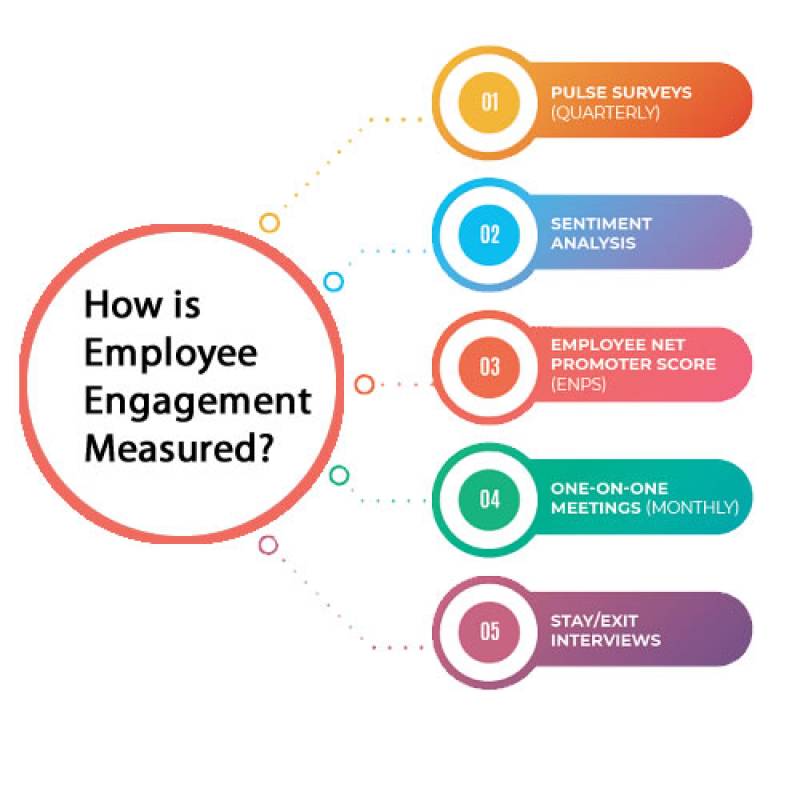
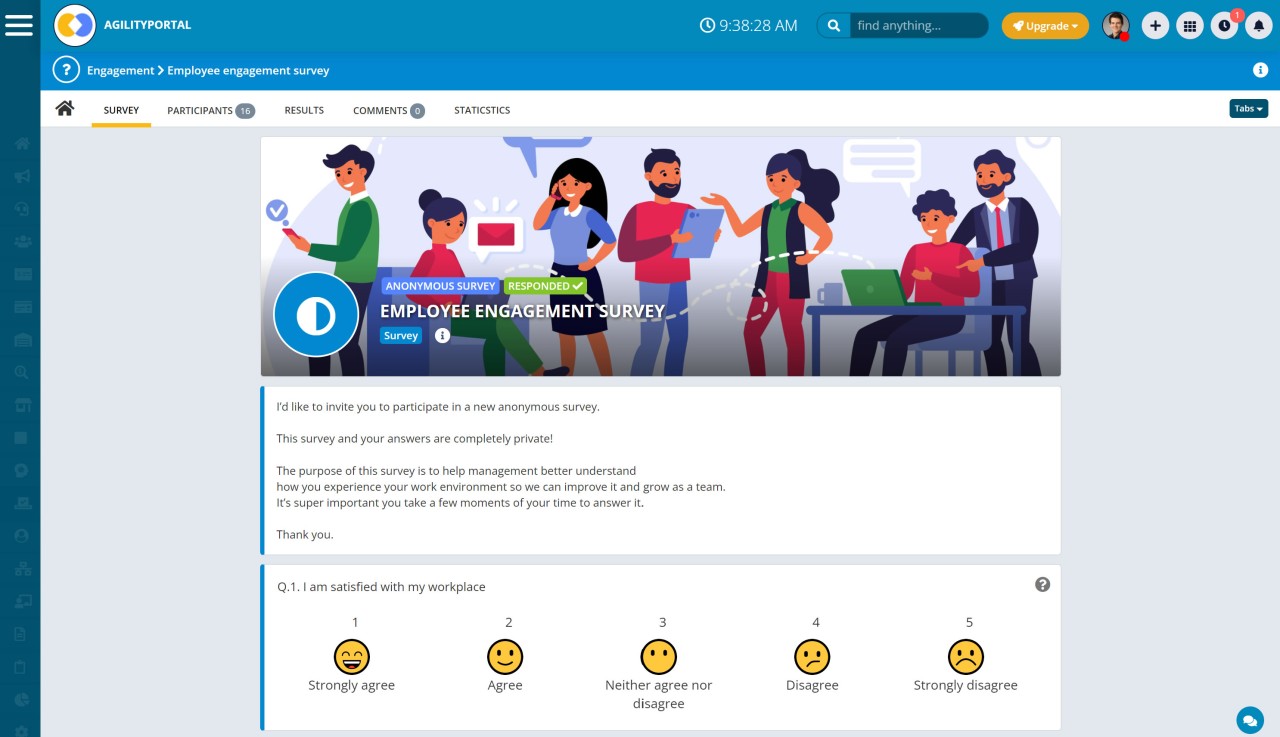

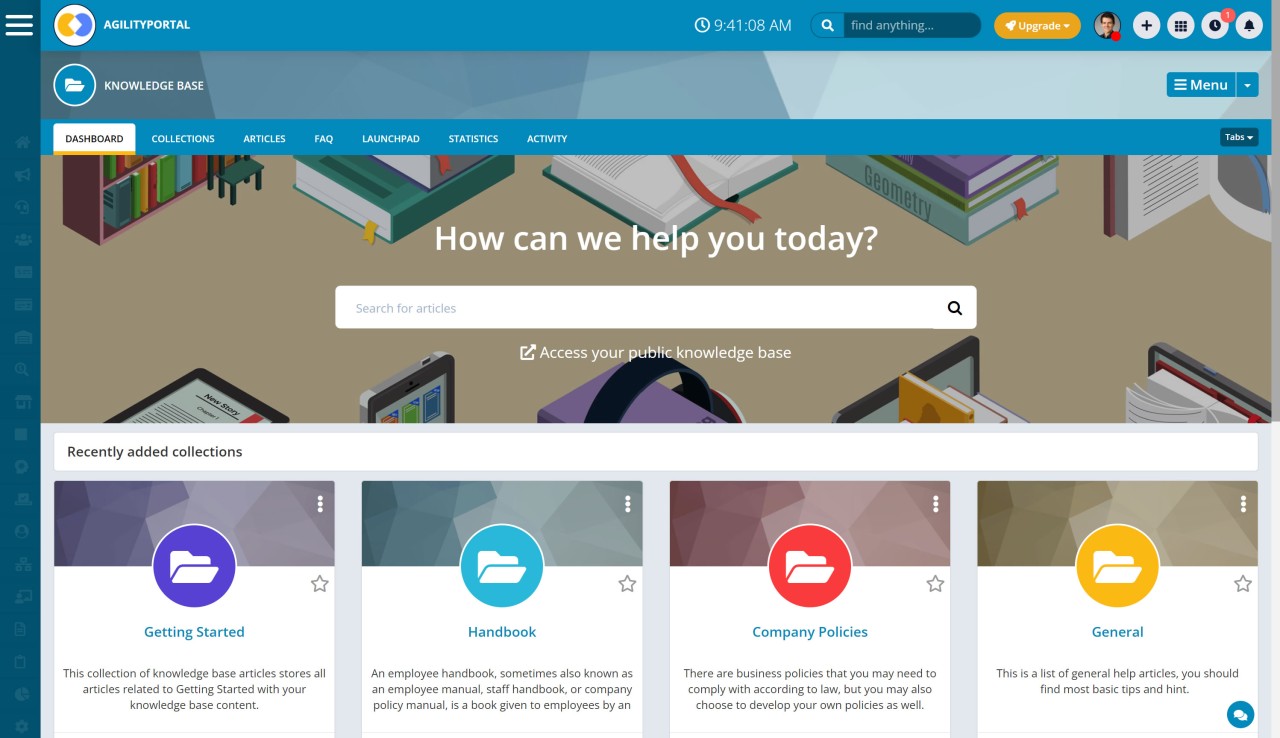
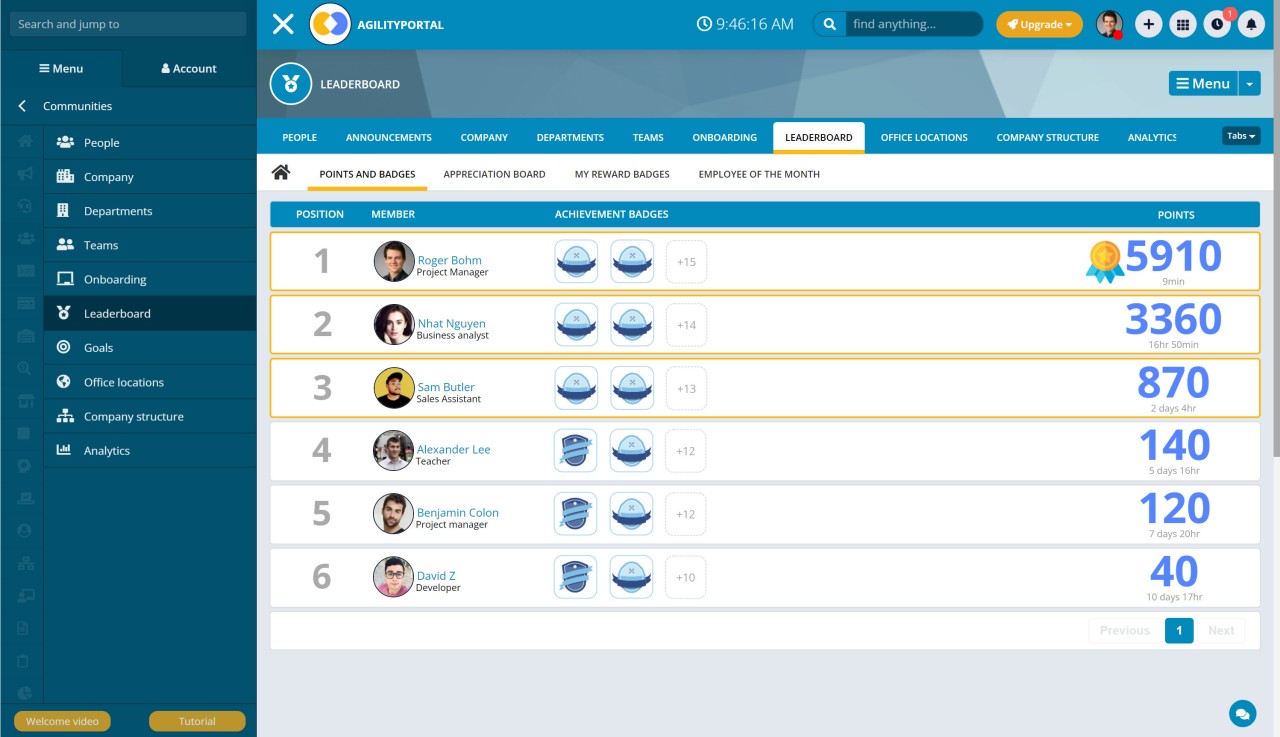
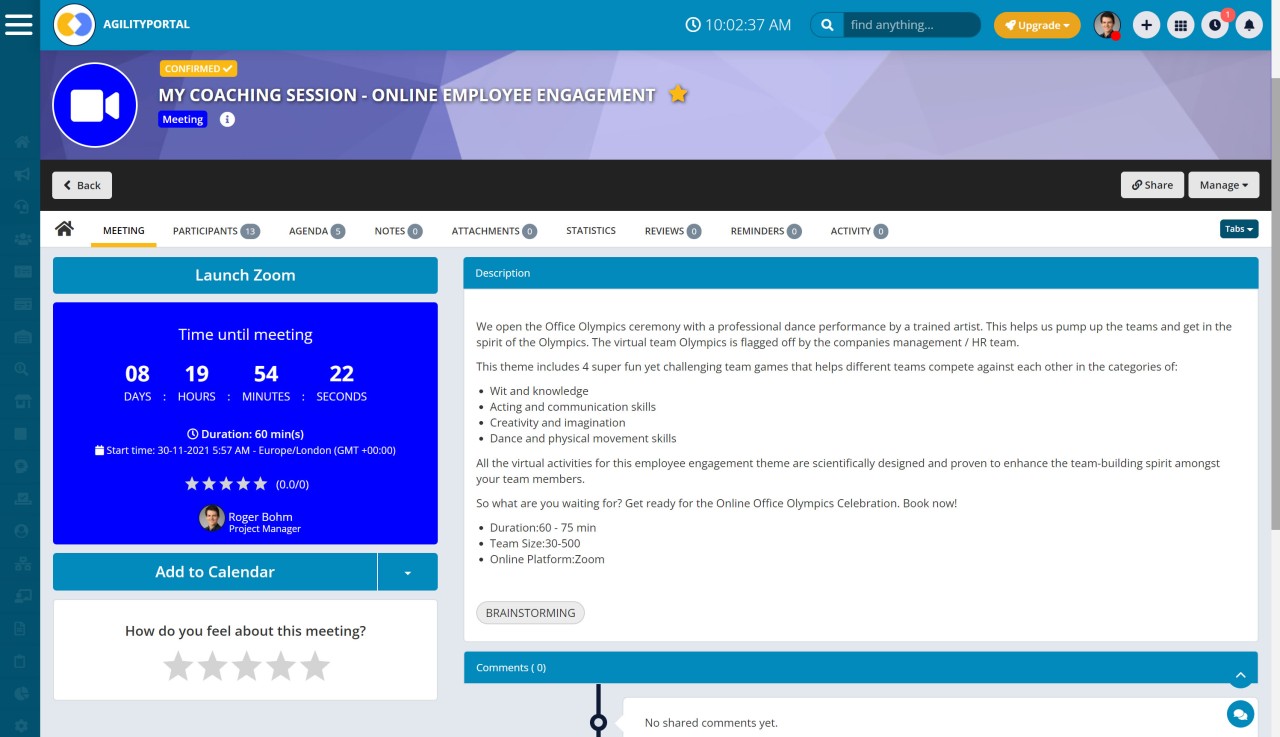
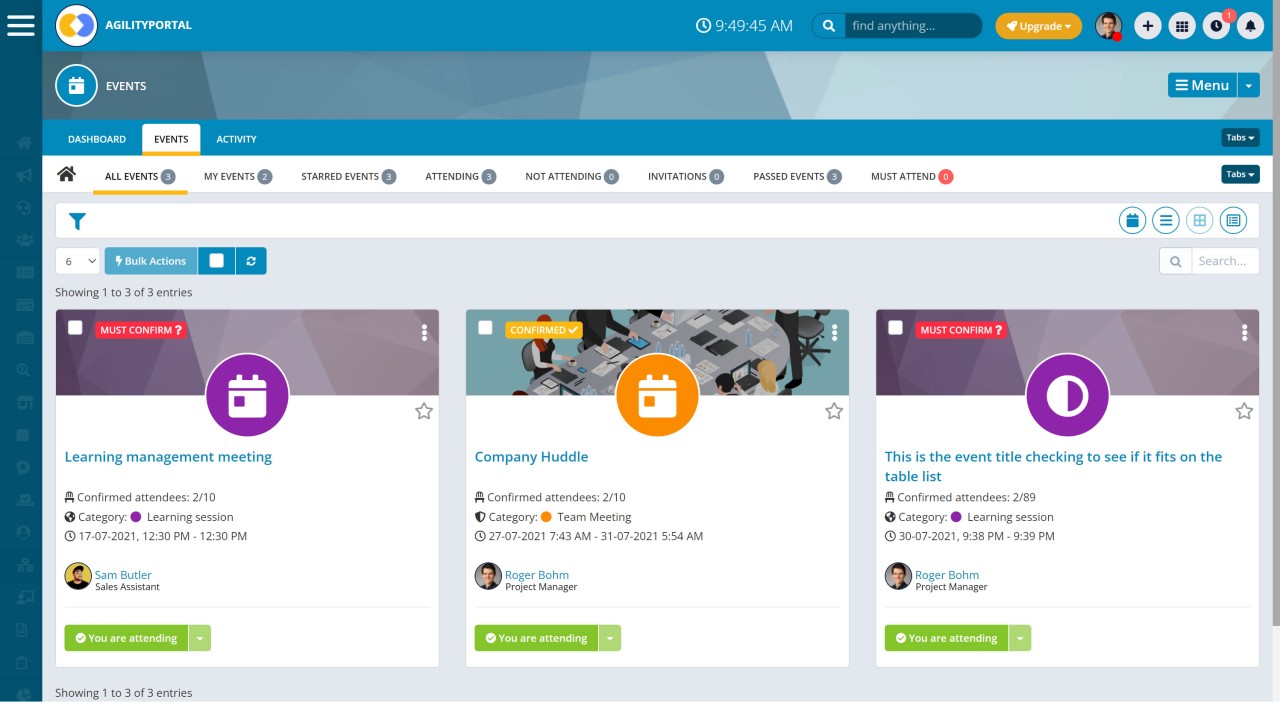
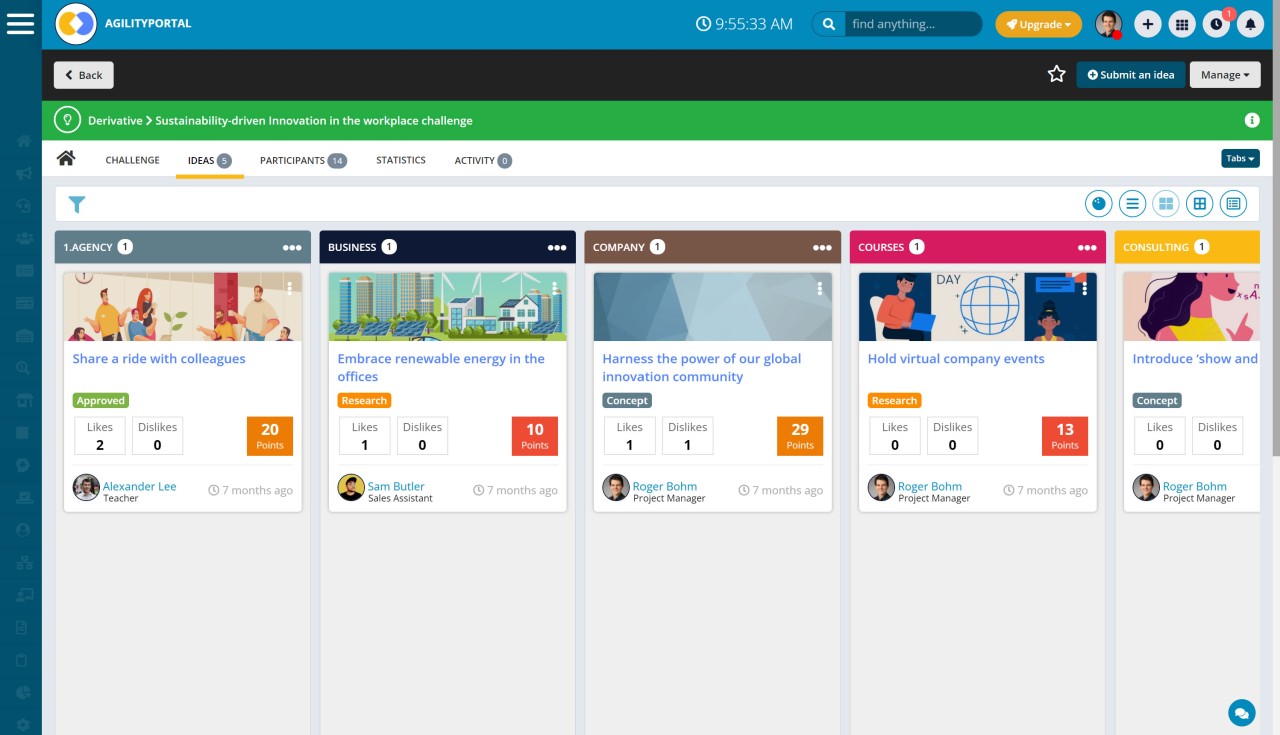
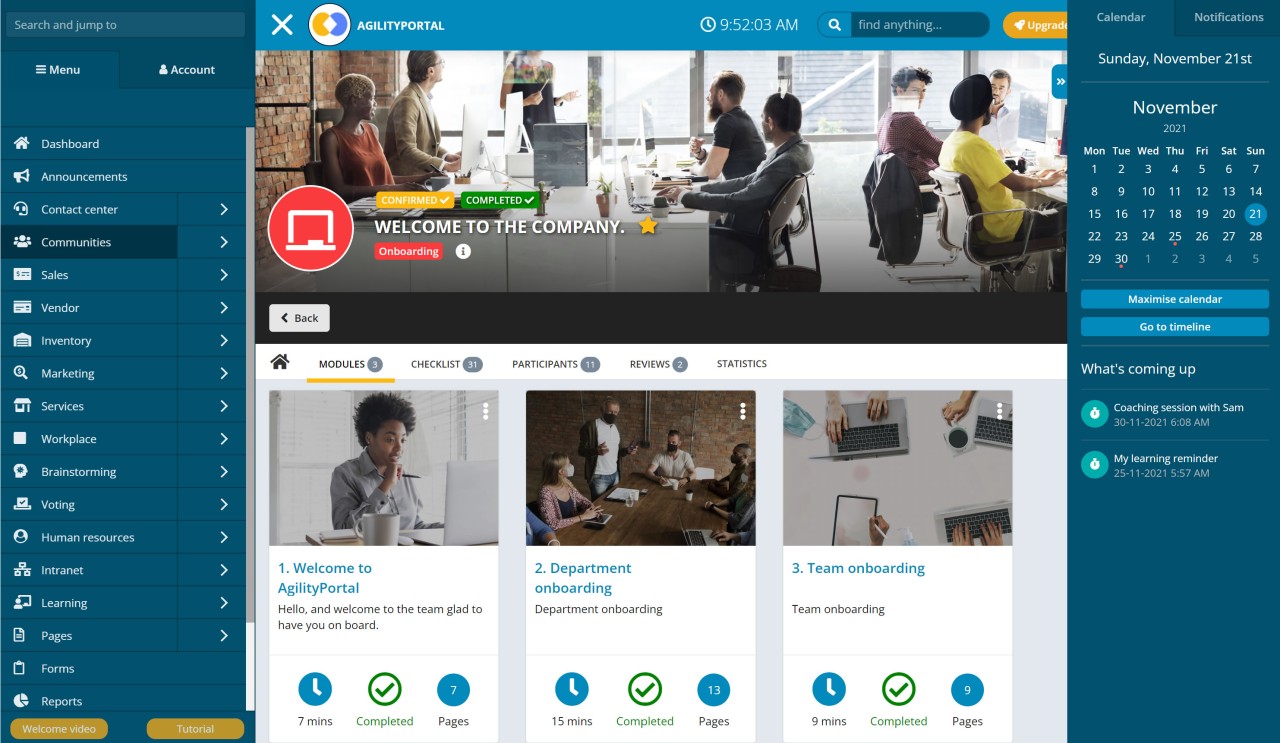
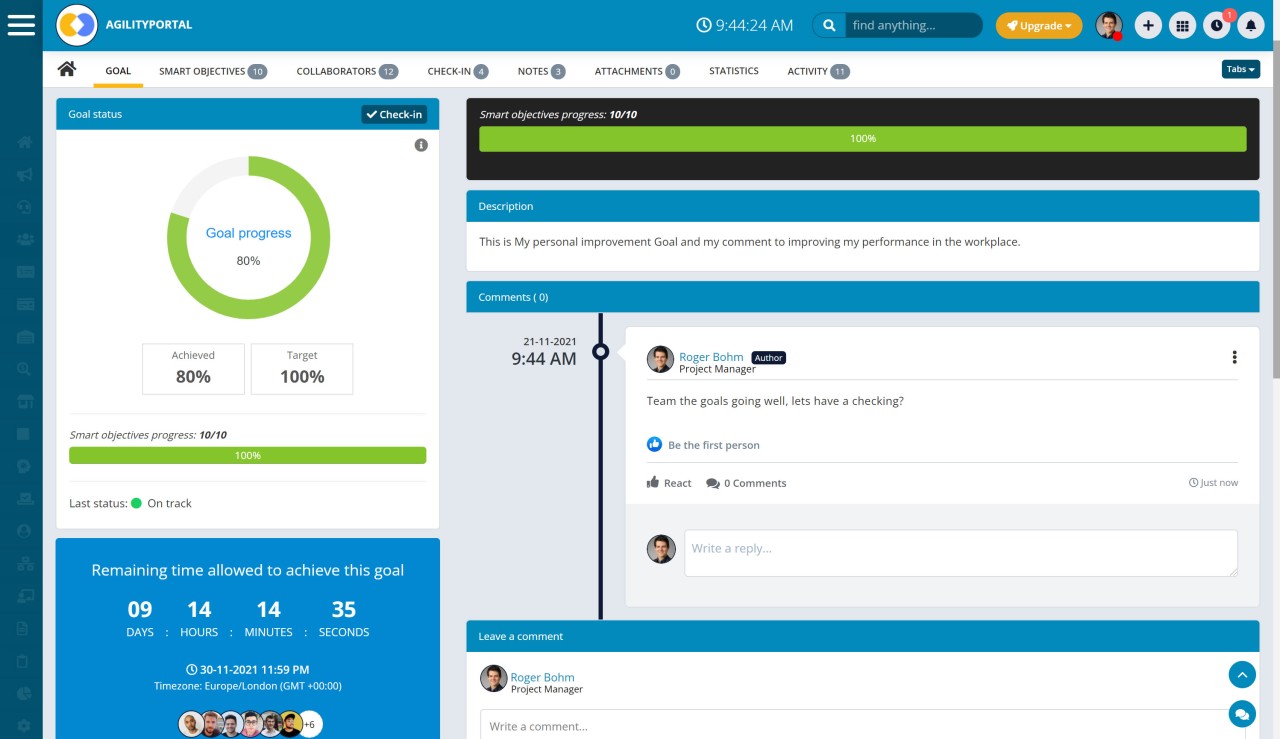





![What Is an Intranet for Business? [2026 Guide] What Is an Intranet for Business? [2026 Guide]](http://agilityportal.io/images/easyblog_articles/1496/b2ap3_thumbnail_What-Is-an-Intranet-for-Business.png)



